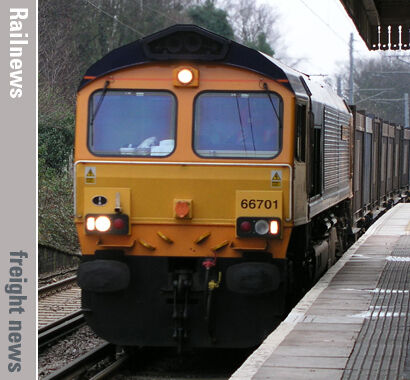SOME rail freight operators have abandoned electric traction, at least for now, because the price of electricity has been rising sharply. The electricity tariffs include a 40 per cent renewable energy tax, and following the latest rises diesel traction is now cheaper. The drivers' union ASLEF is calling for the government to intervene, but Freightliner has already taken action.
The company said: 'As a result of soaring prices in the UK’s wholesale electricity market, the price Network Rail charges us to operate electric services has increased by more than 210 per cent between September and October. This unprecedented rise in electricity charges has resulted in a sharp increase in the cost of operating electric freight services. As a result, Freightliner has taken the difficult decision to temporarily replace electric freight services with diesel-hauled services, in order to maintain a cost-effective option for transporting vital goods.'
Direct Rail Services, which is not privatised, said it was 'committed to low carbon rail freight'. However, it is also able to run its dual traction locomotives only in diesel mode for now, saying: 'Our fleet of locomotives offers the flexibility to adapt to changing market conditions while maintaining a safe, secure and reliable service. That might mean we change the type of traction we use on our train services in response to temporary fluctuations in energy prices.'
The Rail Freight Group said: 'The current significant increase in the wholesale cost of electricity for haulage means that some operators have had to take the regrettable decision to temporarily move back to diesel locomotives. A 200 per cent increase in electricity costs for each train cannot be absorbed by the operators, or customers, and so necessary action is being taken to ensure that trains can continue to operate delivering vital goods across the country. Our members are assuring us that this is a temporary measure and will be kept under constant review.'
The Rail Delivery Group warned that some operators 'may need to take short-term action to afford their bills,' while Network Rail pointed out that 'Electricity costs for Network Rail and passenger operators were negotiated some time ago and are fixed for this year and most of next'.
ASLEF general secretary Mick Whelan said: ‘What an omnishambles! It is utterly ridiculous that, a few weeks before COP26, when we will be looking to our politicians to plan for a green future, and a sustainable economy, to save our planet, environmentally-friendly electric locomotives are being replaced by diesel-powered units to haul goods around the country. Moving freight by rail rather than road is, inherently, a carbon-efficient mode of transport and an environmentally-friendly way of doing business. Electric-hauled freight services reduce emissions by 99 per cent; even moving goods by diesel traction reduces emissions by 76 per cent. But this backwards step – forced on the freight industry by government inaction – will drive a freight train through our green credentials and make our targets that much harder to achieve.
'That’s why we are calling for the Prime Minister to put down his paint brush and stop painting pictures in sunny Marbella and get back to work here in Britain – which is what he is paid for – to help the rest of us out of this crisis. We need the government to act now to help businesses – hit hard by soaring prices – and consumers who are already struggling to pay their bills.'


